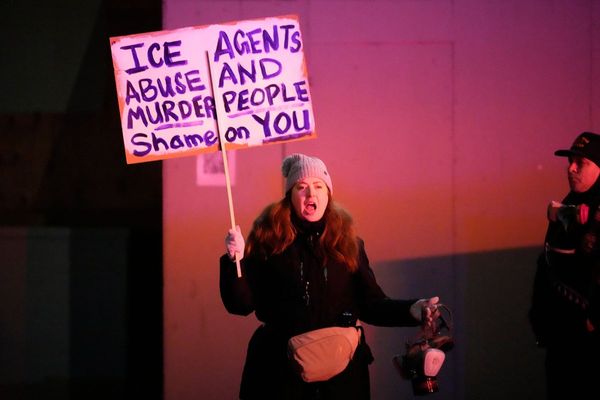
Gary Cohn’s resignation from his post as director of the National Economic Council leaves a big opening in President Donald Trump’s economic team that could be a challenge to fill.
The White House is losing an official with Wall Street credibility, given Mr. Cohn’s long tenure at Goldman Sachs Group Inc., but whose views on trade clashed with the president himself.
The administration must now balance demands to find someone Mr. Trump trusts, who can speak convincingly to investors and the business community, and who can defend the president’s policies.
“It’s going to be hard to find a smart economic mind who supports the current agenda on tariffs,” said Paul Winfree, who served as deputy director of the White House Domestic Policy Council last year until he resigned in December.
Mr. Trump’s willingness to stir conflict among staffers and to rebuff top officials who he believes haven’t demonstrated loyalty to him could complicate the search.
A White House official said Mr. Cohn was frustrated with the decision-making process that led to Mr. Trump’s announcement last week that he would impose U.S. tariffs on imported steel and aluminum.
Unlike cabinet agencies such as the Treasury Department or the Office of Management and Budget, the NEC has no formal responsibility for carrying out legislation or regulations.
The policy-making body has little authority beyond whatever power the president places in it. Since it was created by President Bill Clinton in 1993, it has served as a weigh station for forging policy positions and resolving disputes that cut across multiple agencies in the executive branch.
The profile of its director tends to wax and wane based on other personalities in an administration and the degree to which the president relies on the NEC’s input. Mr. Cohn enjoyed a high profile compared with many predecessors, including Robert Rubin, a former co-chairman of Goldman who later served as Treasury secretary for President Clinton, and Lawrence Summers, a former Treasury secretary who held the NEC post for President Barack Obama.
Mr. Cohn assembled a team of policy specialists on tax, finance, health care and infrastructure who are well-regarded by business groups and congressional Republicans. They kept relatively low, drama-free profiles compared with other parts of the West Wing.
“The NEC has the strongest all-around policy team relative to its size,” said Mr. Winfree.
He credited Mr. Cohn with building a strong team by empowering his No. 2, Jeremy Katz, to staff the council. Mr. Katz departed the administration at the beginning of the year.
“Gary attracted outstanding people, and it’s not obvious that they stay,” said Tony Fratto, who served in the White House and Treasury under President George W. Bush.
The White House hasn’t outlined a timetable to name a successor.
Potential candidates include CNBC commentator and former Trump campaign adviser Lawrence Kudlow; Council of Economic Advisers Chairman Kevin Hassett; and Peter Navarro, a trade adviser who won out over Mr. Cohn in the White House battle over steel tariffs, according to an administration official.
Officials are also considering Andy Puzder, a fast-food executive who withdrew his labor secretary nomination. Mr. Puzder’s confirmation was in doubt after he disclosed a failure to pay taxes for an undocumented housekeeper and decades-old domestic-abuse allegations from an ex-wife surfaced.
Mr. Puzder, who has denied the claims, would be willing to serve in the administration, a spokesman said Wednesday.
Other candidates who could receive consideration include private-equity investor Thomas Barrack Jr.; budget director Mick Mulvaney; and one of Mr. Cohn’s deputies, Shahira Knight.
Some of these potential replacements have been outspoken against the president’s tariffs.
Mr. Kudlow said in an interview last week the tariffs were shortsighted and distracted the U.S. from the more important issue of punishing China for oversupplying steel and aluminum markets. Instead the tariffs punish U.S. allies, he said. The tariffs also threaten to undercut the economic gains from tax cuts the president signed into law in December, he added.
Before joining the administration, Mr. Hassett advocated for fewer restrictions on trade. At a congressional hearing Wednesday, Mr. Hassett said the costs of new tariffs would be outweighed by benefits to national security.
Current and former administration officials predicted most of the NEC staff would leave if Mr. Navarro took the post.
A White House official said Mr. Cohn quit in part due to his frustration with the process in the tariff debate, not because of the policy decision. Mr. Navarro went around the NEC to push for tariffs directly with Mr. Trump, and Mr. Trump agreed, announcing the decision without first telling his senior staff.
“What’s Gary doing there if people can ignore the process?” Mr. Fratto asked. “That’s literally his job—to manage the process.”
While Mr. Cohn’s resignation could clear an obstacle for trade skeptics like Mr. Navarro, some observers cautioned against exaggerating their influence.
Mr. Navarro hadn’t persuaded the president of “something he wasn’t already persuaded of,” said Joshua Bolten, who served as chief of staff to Mr. Bush and now heads the Business Roundtable, a trade group that opposes broad tariffs.�������
Write to Nick Timiraos at nick.timiraos@wsj.com







